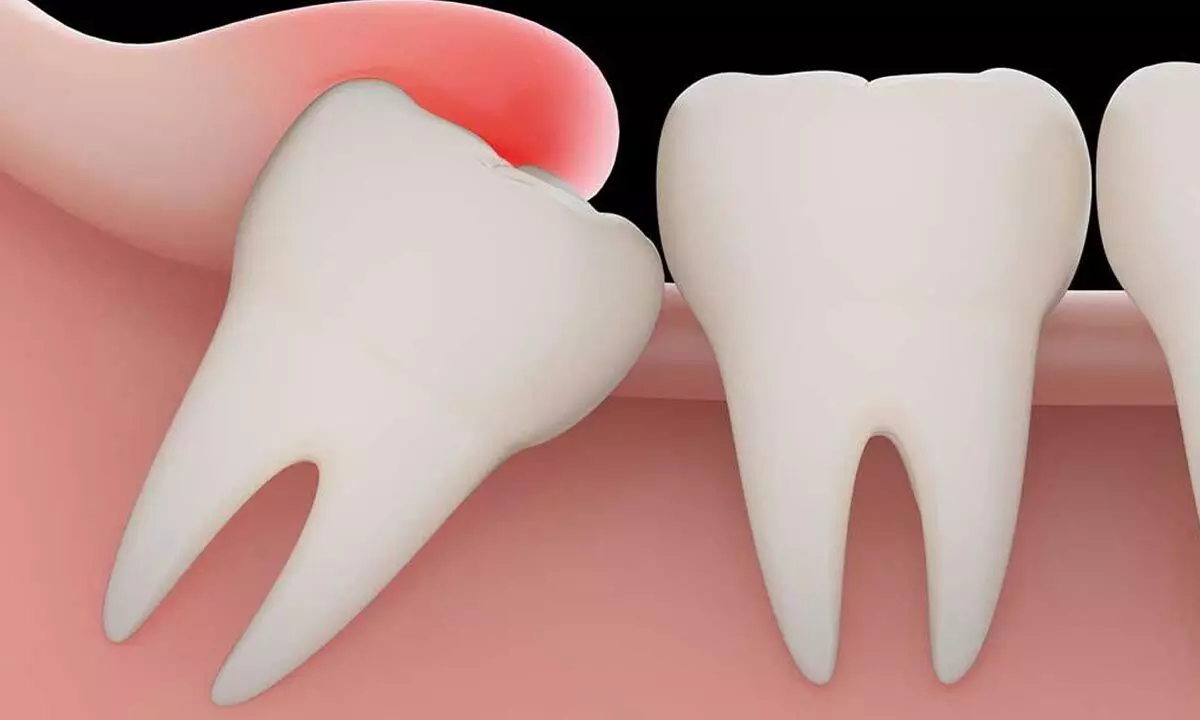Do All Wisdom Tooth Required to be extracted?

if wisdom tooth gets tooth decay, it is usually best to extract them instead of removing the decay and fixing wisdom tooth with fillings, root canals or crowns
If there is not sufficient room in the mouth for the wisdom tooth and they are trying to erupt, they might cause significant pressure on the surrounding tooth and tissues.
Erupting wisdom tooth would usually produce a feeling of pressure of dull throbbing in the back of jaws.
No, not, all wisdom tooth is required to be extracted. When wisdom tooth erupts cleanly through the tissue, with compromising the adjacent tooth, the wisdom tooth can be retained in the mouth with little concern as long as the individual is able to brush, floss and also able to clean it thoroughly.
Sometimes wisdom tooth might cause pain, but an individual can avoid extracting them with few modifications of the surrounding tissues or oral hygiene habits.
-If there is a small flap of swollen gum tissue barely covering the back of the tooth, an individual might have pain, when he/she bites down on that gum tissue.
-if there is otherwise enough room for the wisdom tooth, the gum tissue may be removed from the back of the tooth to remedy this above problem.
-one can also opt to change the angle of tooth brushing and increasing the frequency of flossing both in front as well as behind the wisdom teeth, the above step can help keep the gum tissues healthy and it can also help avoid the potential painful gingivitis or infection around the wisdom tooth.
There may be few situations, wherein extraction of wisdom tooth is necessary
-The wisdom tooth might erupt at an angle such that the adjacent motor can become difficult to keep clean and free of dental caries.
-sometimes the position of wisdom tooth might cause deep periodontal pockets, gum disease or recession around the adjacent tooth and should be removed before too much damage is caused to much more critical second molars.
-if there is not sufficient room in the mouth for the wisdom tooth and they are trying to erupt, they might cause significant pressure on the surrounding tooth and tissues. This pressure can result in bad headache, jaw pain/stiffness or tooth pain, which can be only resolved by removing the wisdom tooth. The pressure can offer the impression that the wisdom tooth are causing crowded teeth.
-if the third molar has erupted through the tissue but is without opposing occlusion (contact with other teeth), extraction must still be considered. Considering the posterior position of an erupted wisdom tooth, these teeth are often difficult to keep clean.
-if wisdom tooth gets tooth decay, it is usually best to extract them instead of removing the decay and fixing instead of removing the decay and fixing wisdom teeth with fillings, root canals or crowns. These treatments that are indicated for the rest of the teeth are often less successful in treating wisdom teeth due to their position in the back of the mouth.
-Removal of a wisdom tooth is indicated if the tooth has been partially erupted through the gingival tissue, causing inflammation and /or infection. This condition is called a partially erupted or partially impacted wisdom tooth. A soft-tissue growth over a partially erupted wisdom tooth is referred to as an operculum. If bacteria become trapped under the operculum, an infection called pericoronitis can develop.
How do you I Know, if I have wisdom tooth?
You can know, whether, you have wisdom tooth by examining your mouth and finding three permanent molars in each dental quadrant. However, if the tooth gets impacted under the tissue, the presence of the tooth requires to be verified by a radiograph.
-Panoramic radiograph is usually, the preferred X-ray to help assess the angle of eruption as well as state of development of the tooth.
-Most wisdom tooth should be visualized erupting through the Gingiva in early adulthood, between the ages of 16 to 23. Sometimes, a individual would feel the effects of the wisdom teeth before they can visualize them in their mouth.
Erupting wisdom tooth would usually produce a feeling of pressure of dull throbbing in the back of jaws.
Your general dentist would often be able to inform you of the condition of these erupting teeth.











